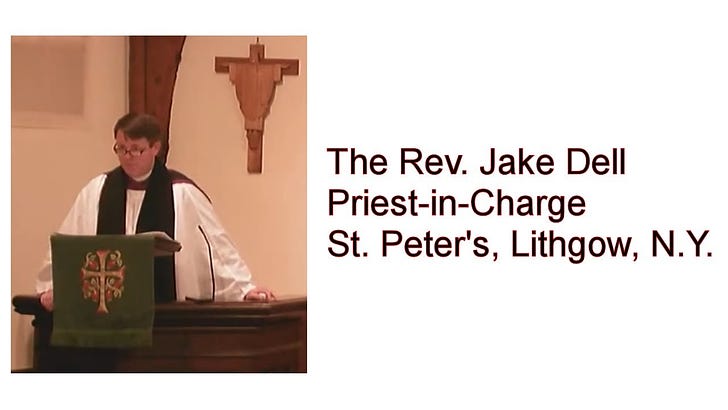I.
In my opinion, the world is schizophrenic.
Last week, I mentioned the Methuselah Project, named after the oldest living man in the Bible, Methuselah. He lived to be 969 years of age.
The Methuselah Project is based on the presupposition that human life expectancy is nowhere near as long as it should be, and therefore seeks to extend it.
Its goal is, “to make 90 the new 50 by 2030.”
This week someone sent me the Simons’ (La Maison Simons) MAID commercial. Simons is a Canadian retail outlet and MAID stands for Medical Assistance In Dying.
This hasn’t really taken off in the States yet, but my clergy colleagues in Canada tell me things are different there.
I am not against wellness or taking care of yourself. Also, I am not saying that life should be prolonged by any means and at all costs. There is a time to die. (Ecclesiastes 3:2.)
But it does seems like we’re being sold on two opposites. If you like your life, you can extend it indefinitely, but if you don’t you can end it.
But by what authority do we do these things?
II.
I am reminded of something Jesus said in John 10:18:
“No man taketh [my life] from me, but I lay it down of myself. I have power to lay it down, and I have power to take it again. This commandment have I received of my Father.”
This tells us three things about Jesus.
The first is that He voluntarily undertook His mission in life, which led Him to His death on the cross for our salvation.
Second, it tells us that Jesus has power over life and death.
Third, despite this extraordinary power, Jesus is obedient to His Father’s commandment.
Jesus shows us the right use of power and freedom. From His example we learn that freedom and power must be governed by lawful authority.
If any man had a right to claim autonomy it was Jesus, but He did not claim it.
III.
Marketing efforts to entice us to live beyond our years or to end them by our own hands presuppose the same thing: that we have the right to determine who we are.
Self-determination depends on the presumption of autonomy. The Greek root of that word is nomos, which means law.
Autonomy, therefore, means self-law. Every man is a law unto himself.
It should be obvious (but I will point it out anyway) that this sort of thinking destroys communities. Writ large, it destroys entire nations. I sometimes think we have reached that point in our own nation’s life.
IV.
Today we celebrate the resurrection. We rightly focus on Jesus’ resurrection, but that focus tends to obscure the fact of our own resurrections.
You see, the resurrection is a sign of hope to those who believe but is a sign of judgment on those who do not.
Jesus says,
“Do not be amazed at this, for a time is coming when all who are in their graves will hear his voice and come out—those who have done what is good will rise to live, and those who have done what is evil will rise to be condemned.”1
Resurrection is a reminder that we are not the masters of our fate, that we are not autonomous.
Whether we think we can cheat death by prolonging life or by dying on our own terms, resurrection reminds us that we do not set the terms. God sets the terms.
This is why those who do good will rise to live again, but those who do evil will rise to be condemned.
V.
Jesus was very careful as He approached His own death to make sure that He was perfectly conformed to His Father’s will and obedient to His Father’s commandment.
We should be just as careful.
It is not worth extending our lives only to live in further disobedience. That will only add to our condemnation.
Neither can we take life, even our own life, without God’s authority. With only a few exceptions (meat for food, self-defense, lawful warfare, and to punish those guilty of capital crimes), God does not give us that authority.
What God does give us is the promise of eternal life.
Jesus says,
“Very truly I tell you, whoever hears my word and believes him who sent me has eternal life and will not be judged but has crossed over from death to life.”2
This means putting our faith in God the Father whose authority even Jesus acknowledged and whose commandments He obeyed.
The act of faith is sufficient not because believers all of a sudden start leading perfect lives, but because the one in whom we put our faith is perfect. His work is complete. It cannot be added to or diminished in any way.
Jesus’ resurrection is a day of hope and joy because He rises to live again after a life well-lived. He rises to a great reward. He rises to rule a kingdom, a kingdom that He invites all of us to enter.
All that we need to do to emigrate to His kingdom is to confess our sins, put our trust in Him, and love others as He loved us. Amen.
Preached on April 9, 2023 at St. Peter’s Lithgow, Millbrook, New York.




The care that goes into these sermons is very evident. The scholarship behind these seems immense!